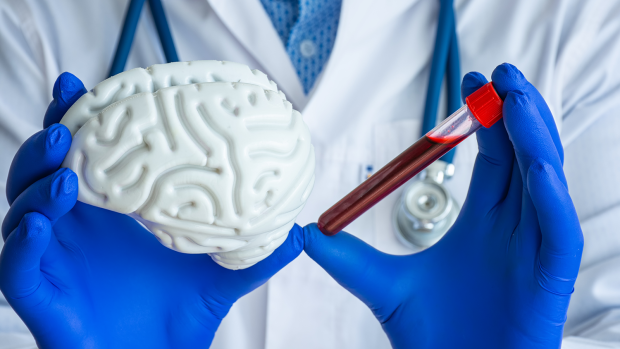NYU researchers partner with FDA to identify biomarkers for stroke rehabilitation
A unique collaboration between the engineering sector (NYU Tandon), the clinical sector (NYU Langone), and the regulatory sector (the U.S. Food and Drug Administration) will bring biomarker data to bear on neurorehabilitation technology.

BROOKLYN, New York, Wednesday, September 28, 2022 — Stroke is the leading cause of age-related motor disabilities and is becoming more prevalent in younger populations as well. But while there is a burgeoning marketplace for rehabilitation devices that claim to accelerate recovery, including robotic rehabilitation systems, recommendations for how and when to use them are based mostly on subjective evaluation of the sensorimotor capacities of patients who use them.
S. Farokh Atashzar, assistant professor of Electrical & Computer Engineering and Mechanical & Aerospace Engineering at the NYU Tandon School of Engineering, member of the Center for Urban Science and Progress (CUSP), and the director of the Medical Robotics and Interactive Intelligent Technologies (MERIIT) Lab; in collaboration with John-Ross Rizzo, associate professor of Biomedical Engineering at NYU Tandon and Ilse Melamid Associate Professor of rehabilitation medicine at the NYU School of Medicine, are working with Dr. Ramin Bighamian from the U.S. Food and Drug Administration (FDA) to design a regulatory science tool (RST) based on data from biomarkers in order to improve the review processes for such devices and how best to use them.
The team will design and validate a robust recovery biomarker enabling a first-ever stroke rehabilitation RST based on exchanges between regions of the central and peripheral nervous systems.
“There is currently no approved RST for assessing the efficacy of rehabilitative devices for post-stroke motor recovery,” explained Atashzar. “This unique collaboration will shed light on how neurological markers can demystify the complex patterns of neural communication, realizing an objective ‘neurophysiological window to degradation in the interaction between anatomy, activation, and pathway in post-stroke patients.”
The research team will also promote FDA regulatory science on next-generation brain-machine interfaces. Additionally, the project will include seminars and undergraduate research to promote STEM education with a focus on engaging students from underrepresented groups.
Atashzar is also with NYU Center for Urban Science and Progress (CUSP). The project will promote health-related engineering science, research, and education for students from NYU CUSP and NYU Tandon.
The project is supported by the U.S. National Science Foundation.
“This project exemplifies how, as we build our expertise in areas like neural engineering, we are cultivating a highly collaborative research atmosphere — across disciplines such as data science and medicine, between Tandon and other schools at NYU, and spanning the lab and the classroom — all with the greater good in the mind of helping patients,” said Jelena Kovačević, Dean of NYU Tandon. “The importance of this work with the NYU School of Medicine speaks for itself, but it is also heartening to see validation of it from both the FDA and NSF.”
About the New York University Tandon School of Engineering
The NYU Tandon School of Engineering dates to 1854, the founding date for both the New York University School of Civil Engineering and Architecture and the Brooklyn Collegiate and Polytechnic Institute. A January 2014 merger created a comprehensive school of education and research in engineering and applied sciences as part of a global university, with close connections to engineering programs at NYU Abu Dhabi and NYU Shanghai. NYU Tandon is rooted in a vibrant tradition of entrepreneurship, intellectual curiosity, and innovative solutions to humanity’s most pressing global challenges. Research at Tandon focuses on vital intersections between communications/IT, cybersecurity, and data science/AI/robotics systems and tools and critical areas of society that they influence, including emerging media, health, sustainability, and urban living. We believe diversity is integral to excellence and are creating a vibrant, inclusive, and equitable environment for all of our students, faculty, and staff. For more information, visit engineering.nyu.edu.




